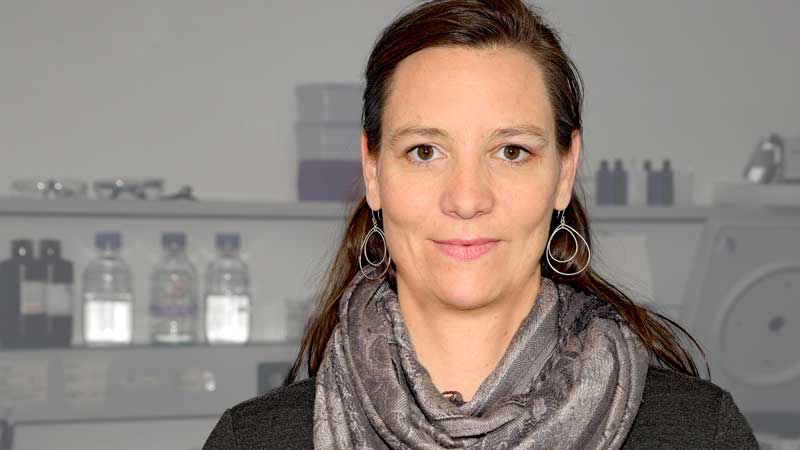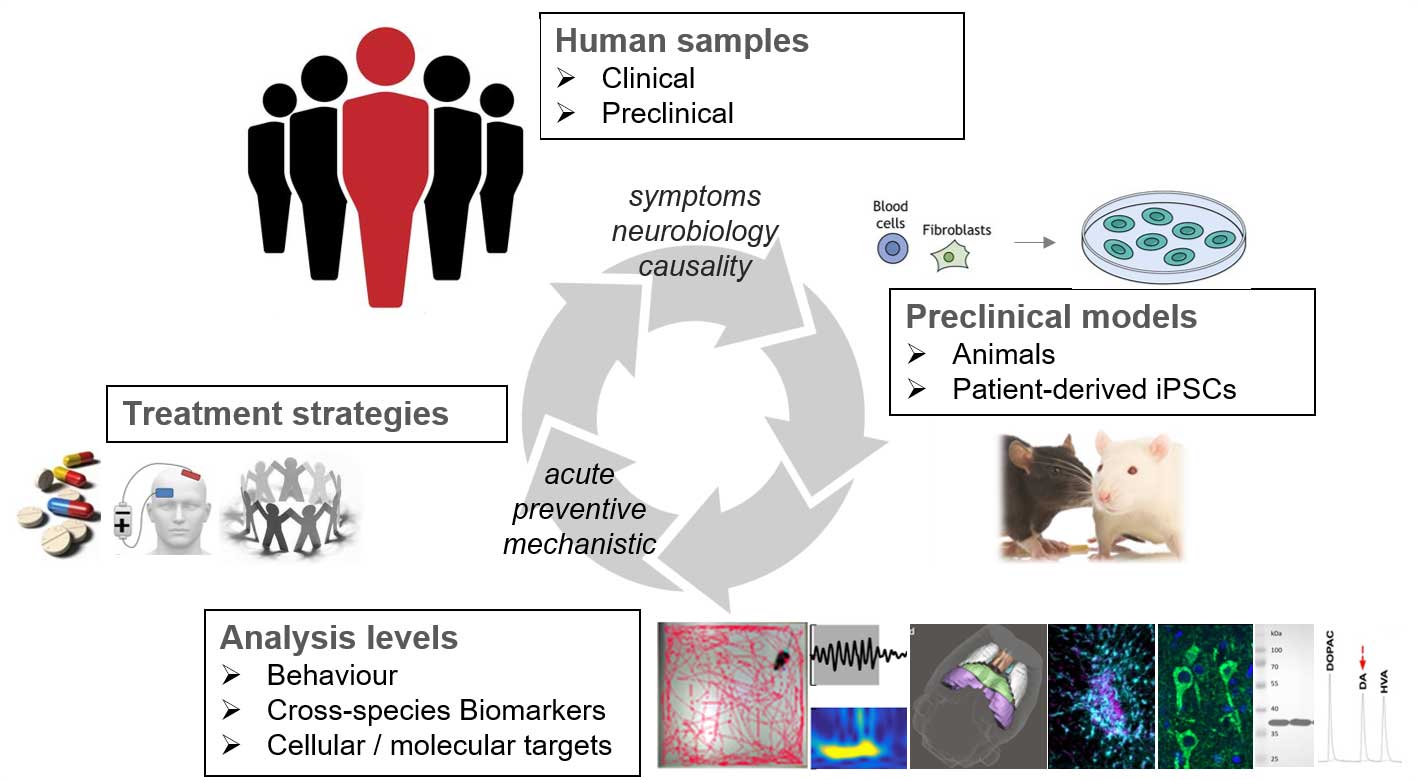Nadine Bernhardt Group
Neurobiology of Psychiatric Disorders

Mental illness represents a major emotional, health and financial burden for patients, their families and society. Neuropsychiatric disorders account for about one-third of all years lived with disability worldwide, with rising prevalence and greatly increased mortality compared to the general population. At the same time, there has been limited improvements in the treatment and the availability of specific diagnostic and/or prognostic biomarkers.
For most psychiatric disorders, the etiology is complex involving genetics, in some cases by single gene mutations (e.g. tuberous sclerosis), in others by multiple genetic risk factors (e.g. schizophrenia, autism spectrum disorders, addiction, affective disorders). Furthermore, the high inter-individual variability in symptom severity and age-related progression is attributed to a number of environmental impacts. These can decisively influence the expression of the genetic "determinants" and thus lead to additive or synergistic interactions. Increased vulnerability results in developmentally relevant time windows and from the unique plasticity of the brain, whereby pre- and postnatal events modulate time-delayed pathophysiological changes. With this in mind, our research concerns investigations into the development of psychopathology employing foremost rodent models. Here, behavioral outcomes, neuropharmacology and neuromodulatory strategies form the basis to gain mechanistic insights into disease specific neuropathology. Within the clinical setting, we additionally aim to combine this work with studies in preclinical and patient cohorts.
In particular, we are interested in the dopamine system, which is unique among the brain’s modulatory systems in that it has discrete projections to specific brain regions involved in motor behavior, cognition and emotion. Disruptions within this regulatory system have been associated to the pathophysiology of several psychiatric disorders including addiction, schizophrenia, depression or repetitive symptomatology. One still unsolved question in this context, however, concerns the interplay between dopamine dysfunction and altered interneuron functionality for behavioral outcomes. Another area of interest concerns dopamine signaling, reward and cognitive functioning. Alterations predominate current hypothesis of addiction development and may be modulated via 3D printed neuroprosthetics.

Future Projects and Goals
Our primary goal is to describe disease-specific pathomechanisms with regard to a longitudinal developmental perspective. We do this predominantly via studies in valid animal models of psychiatric disorders with genetic, environmental or multifactorial etiology, which allow an in depth investigation of neurobiological correlates of behavioral abnormalities at all levels of brain integrity.
Our long-term aim is to establish
- new approaches to interfere with symptom manifestation and
- preventive treatment strategies with translational value.
Methodological and Technical Expertise
- Behavioral testing with cross-species relevance
- Brain stimulation (tDCS, edura) and recording (LFP, ERP…)
- Detection of neurotransmitters (HPLC)
- Immunohistochemistry and microscopy
- Small animal MRI analysis